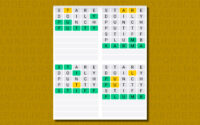Short Course: The Politics of Research Ethics: Cultivating a Critical … – Political Science Now
Rebecca Tapscott
Full Day, 9:00 AM – 5:00 PM
Los Angeles Convention Center, 501C
In recent years, political science has taken an ethical “turn”. Scholars are increasingly publishing on research ethics, convening panels and roundtables; many journals now request statements on research ethics or evidence of ethical review; and in 2020, the APSA released a new set of ethical principles to guide political science research. This impressive collective effort has brought ethics to the fore, enriching reflection on what constitutes an ethical choice, and the methodological and normative implications of these decisions.
Starting from this point, this workshop convenes scholars concerned with research ethics to consider how we might develop a critical orientation toward these issues, and what may be gained by doing so. To this end, we ask how we might conceptualize research ethics as political practice and what new ethical considerations this would raise. In particular, the minicourse sets out the implications of decentering the individual researcher, instead foregrounding social, political, and institutional structures that constrain how issues are made “ethical” and the political economy of these decisions. We propose that this critical orientation adds depth and nuance to cutting-edge scholarship on ethics by situating ethical standards, debates, and decisions within the broader politics of knowledge production, and the role of political science therein.
The workshop aims to encourage participants to draw on this critical orientation to take active ownership of ethical decisions, situating these within the broader political economy of academic knowledge production. To this end, this pre-conference short course will include several mini lectures combined with a series of facilitated discussions that draw together case studies with recent work in political science on the practice and regulation of research ethics. The minicourse will have two taught sessions, and an afternoon roundtable.
Session 1: The politics of research ethics [3 hours, 9:30am-12:30pm]
After introductions and icebreakers, the first session will begin with a case of a real-world ethical conundrum and provide a sandpit for participants to collectively identify ethical questions that emerge from the case. Pedagogically, we start with this session to engage participants and build a collaborative environment. Convenors will draw out themes from the discussion and highlight where and how different issues point to a political economy of research ethics, and the implications of making these decisions under the framework of “ethics”.
Session 2: What would a critical orientation toward research ethics look like? [1.5 hours, 1:30pm-3:00pm]
The second session situates the discussion from Session 1 in relation to the institutional or disciplinary tools that currently exist to provide guidance on ethical practice, including institutional review boards, professional trainings such as CITI, and APSA’s new guidelines. In a guided discussion focused on IRBs, we will consider how ethical principles and structures interface with the substantive commitments and contradictions identified in the first session. After setting out IRBs as an object of study that are defined by a particular historical political economy, we reflect on how structurally, they therefore privilege certain conceptualizations of what constitutes an “ethical” question, even while leaving ethical decision-making extremely open ended due to their reliance on broad ethical principles (respect for persons, beneficence, and justice). This session builds on the first session to help draw together discussions of procedural ethics and ethics in practice, two areas that are often seen as existing in parallel or even in conflict. Instead, the short course shows how both can benefit from a critical orientation, and in this sense, can importantly complement one another. The conclusion of the session will draw together strands from the morning sessions to set out how political scientists might begin to make space for a critical orientation toward research ethics.
Session 3: Research Ethics Roundtable [1.75 hours, 3:15pm-5pm]
The final session will feature a round-table with Anastasia Shesterinina and Rebecca Tapscott, along with additional guests Will Reno and Trisha Philipps to reflect on how discussions on research ethics have evolved in political science, and what broader structural factors (e.g., disciplinary, political, sociological factors) may be shaping the evolution of this debate. There will be ample opportunity for exchange with workshop participants.
Objectives:
At the end of this short course, participants will:
- have familiarity with key ethical principles and their potential implications for political science,
- understand research ethics (i.e., identifying ethical problems, discussing and reflecting on ethics, and making decisions about what is ethical or unethical research) as political practice,
- be able to discuss some potential implications of this, for individual research projects and for the practice of research ethics in political science more broadly.
Source: News

